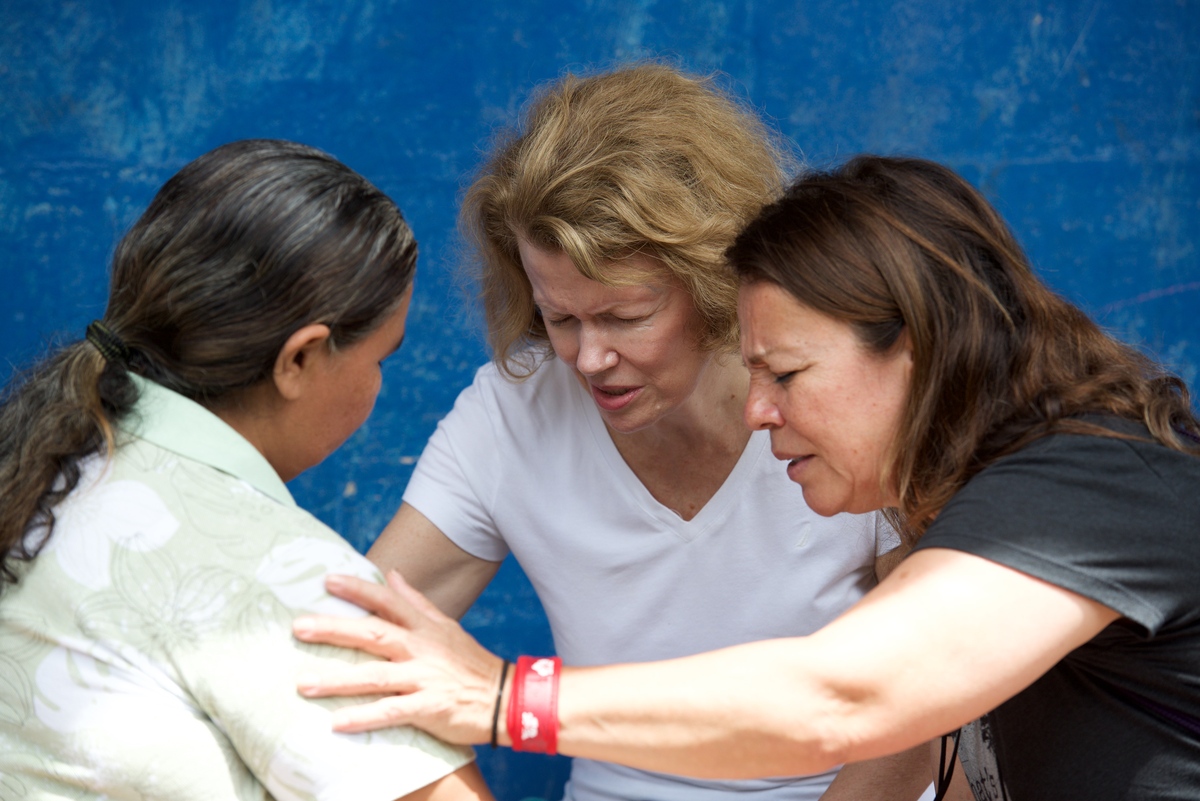When Red Turns to White
EuropeRed. A rich, passionate, but alarming color that marked Hungary from May 1955- October 1989, binding the country to the Warsaw Pact and Communism under the Soviet Union. The Iron Curtain, once deemed an impenetrable force, has fallen; but a barrier still persists. On one side stand the Hungarians; on the other stands God, seeking to infiltrate their hearts with His love.
The Soviets sought to eradicate all belief in a higher power, especially the name of Jesus.
Jocelyn Gracza, an Assemblies of God World missionary to Hungary since 1990, explained, “Anything that referred to God or religion was wiped out of literature and vocabulary. Knowledge [of God] was kept away from Hungarians.”
The Soviets deemed that all religion, including Christianity, was not necessary. The Soviets encouraged Hungarians to look inward for their needs. An unofficial atheistic attitude prevailed, which restrained churches and worship places. This led to widespread misconceptions about the Bible and Jesus. Even as restrictions loosened, efforts to minimize religion’s impact on society persisted.
A Hungarian woman who Jocelyn befriended told her that she had been secretly baptized in a Catholic Church during Soviet Hungary. “They snuck me in; they baptized me,” she said. “I have never understood how there could be power in a process that has to be secret.”
Despite the challenges, AGWM missionaries like Jocelyn and Paul Gracza work to bridge the gaps left by time and atheism. Paul, president of Pentecostal Theological College, founded in 1991, grew the school from 15 to 340 students. His aim: to train pastors, counselors, and workers for the local community and the local church.
The spiritual atmosphere in Hungary has slowly shifted since the 1990s. “Some years back, the prime minister of Hungary indicated we were in a moral crisis as a society and we needed to bring the Bible and religion back into the lives of Hungarian citizens,” said Paul. “[The prime minister] was the motivator behind opening the Bible schools."
Because of a preconceived knowledge of God and religious ritual, openly proclaiming the gospel is now more difficult than at the initial fall of the Iron Curtain. Despite this, the declaration of Hungary’s prime minister opened opportunities for personal relationships and connections between Christians and the unreached in Hungary.
As Hungary relearns the truth of Christ, displaying His love through action and relationship becomes crucial. Some Hungarians are hesitant to accept Jesus due to their experience with religion in the past. This increases the need for an authentic encounter with Christ and discipleship fueled by personal relationship, investment, and care.
“Our part is to bring them to Christ, so people know more about Christ, but it’s really a challenge to be able to … share that with them,” said Jocelyn. “But when they see love in action, when they see and understand the transformation, there’s great openness."
The Hungarian Pentecostal Church skillfully adapts to the shifting spiritual needs of Hungarians as they are slowly emerging from a season of religious eradication and misconception. Both formal and informal opportunities to spread God’s love are rising within the layers of society.
“It’s not a social gospel, but it’s an opportunity to use love and care, to serve the local community. This service can bring them into relationship with Christ, other believers, and the church. Our heartfelt prayer is that they will know Jesus,” said Paul.
The Graczas emphasize relational, community-driven evangelism as the key to missions work in Europe. Many Hungarians are not actively seeking God, so going out into the community is essential. The Graczas, in their three decades of ministry, have impacted neighbors, friends, and strangers by intertwining their lives with Hungary and its people.
“You need to go out of the church and find them because they don’t know. There is no perceived lack,” said Jocelyn. “We do a lot of evangelism, life-investing, and just being in our community with our neighbors, and with people who aren’t ever going to come to church unless we go get them.”
Most important, the Gracza’s longevity has impacted them as well, binding their hearts, minds, and souls with Hungary and the Hungarian people. Although there have been many changes since their initial arrival, they trace their deep love and burden for Hungary back to their first day.
December 6, 1991, just two short years after the fall of the Iron Curtain, Paul and Jocelyn Gracza sat at the dusk-encapsulated Citadelia in Budapest, Hungary. As the lights of homes, businesses, and streetlights slowly ignited below like a chain reaction, the words of their area director rang in their ears: “Paul and Jocelyn, I give you your city.” It was then that the Graczas felt God implant the roots of their hearts, souls, and bodies into Hungarian soil. It was then that their ministry to the Hungarian people, which has planted God’s love into a country so averse to it, began.
White. The color of fresh snowflakes drifting through the air on that cold December evening. A color to signify new beginnings, cleanliness, and good. The color of hope.
By Holly A.V. Knapp






















